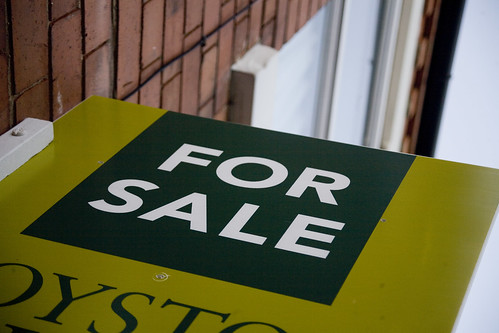5 Ways to Avoid Foreclosure
Despite improvements in the economy, many homeowners continue to struggle with their mortgage payments. Contacting your lender as soon as you know you're going to have problems repaying the loan is the smartest route to take. You may be able to take advantage of one of the following five ways to avoid foreclosure.
Refinance the Mortgage

Image via Flickr by woodleywonderworks
If you want to convert your adjustable rate mortgage to a fixed-rate one, or if current interest rates are lower than the rate on your mortgage, consider refinancing it. The lower rate will reduce your monthly payments. Moreover, if you can get the repayment terms spread back out to 30 years, your monthly payments will be even lower. You don't even have to refinance with your current lender; you can shop around for the best rate.
To qualify for refinancing, you must have good credit and be up to date on your mortgage and other loan payments. If you don't qualify for refinancing, the Federal government's Home Affordable Refinance Program may be able to help you secure it.
Ask for a Forbearance or Repayment Plan
If you are going through a temporary rough patch and just need time to catch up, a forbearance will suspend your mortgage payments for a short period of time. When the forbearance period has ended, a part of those suspended payments will be added to your monthly payments until the full amount has been repaid.
If you are already a few months behind due to a brief economic hardship that's now over, your lender may agree to a repayment plan that lets you make the back payments as described above to get current again.
Request a Loan Modification
A loan modification changes the terms of your existing mortgage to create smaller monthly payments when it's clear you are going to default on the loan. Your lender may agree to extend the period of time needed to repay the loan, reduce the interest rate, offer a different type of loan, or a combination of the three. If you have a Freddie Mac mortgage, you may be eligible for itsHome Affordable Modification Program.
A word of caution: because loan modification scams are prevalent today, it may be wise to consult with experienced mortgage banking attorneys like Rosicki Rosicki & Associates who can help you avoid the scammers and get modification terms that best meet your needs.
Sell Your House

Image via Flickr by Diane Parkhouse
When it's clear you're going to default on your loan, you can also try selling your property. Your lender may even agree to a short sale where the amount you owe is greater than the amount the house sells for. And because the Mortgage Forgiveness and Debt Relief Act of 2007 was extended through 2013, you won't be taxed up to $2 million on the portion of the debt that is forgiven, as long as the short sale takes place before the end of the year.
Just be advised that your credit score will take a hit, reduced by between 80 to 160 points, which is about the same for a foreclosure.
Request a Deed-In-Lieu of Foreclosure

Image via Flickr by JefferyTurner
If you're unable to sell your house or the bank refuses to accept a short sale, request a deed-in-lieu of foreclosure. You will need to prepare and sign a properly notarized deed handing over the house to your lender in exchange for the lender's forgiving all or a portion of the debt. Again, your credit score will be negatively impacted the same as if you had gone through a foreclosure. It's a good idea to retain competent legal counsel to help you prepare the deed and negotiate the terms.
Don't be afraid to approach your lender as soon as you realize you're going to have problems making timely mortgage payments. It may spell the difference between quickly catching up or losing your home and severely damaging your credit.
More to Read:
Previous Posts:










